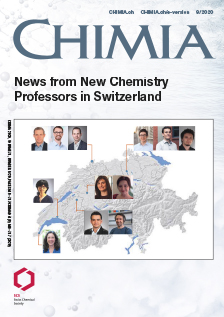Catalytic Cascade Reactions Inspired by Polyketide Biosynthesis
DOI:
https://doi.org/10.2533/chimia.2020.699PMID:
32958107Keywords:
Aldol condensation, Atropisomers, Biomimetic synthesis, Late-stage catalysis, StereoselectivityAbstract
Aldol reactions belong to the most important methods for carbon–carbon bond formation and are also involved in one of the most astonishing biosynthetic processes: the biosynthesis of polyketides governed by an extraordinarily sophisticated enzymatic machinery. In contrast to the typical linear or convergent strategies followed in chemical synthesis, this late-stage catalysis concept allows Nature to assemble intermediates that are diversified into a broad range of scaffolds, which assume various crucial biological functions. To transfer this concept to small-molecule catalysis to access products beyond the natural systems, a stepwise approach to differentiate increasingly complex substrates was followed by investigating arene-forming polyketide cyclizations. An outline of our efforts to develop and apply these concepts are presented herein.Downloads
Published
2020-09-30
Issue
Section
Scientific Articles
License
Copyright (c) 2020 Daniel Moser, Alessandro Castrogiovanni, Dominik Lotter, Reto M. Witzig, Vincent C. Fäseke, Felix C. Raps, Christof Sparr

This work is licensed under a Creative Commons Attribution-NonCommercial 4.0 International License.
How to Cite
[1]
D. Moser, A. Castrogiovanni, D. Lotter, R. M. Witzig, V. C. Fäseke, F. C. Raps, C. Sparr, Chimia 2020, 74, 699, DOI: 10.2533/chimia.2020.699.







